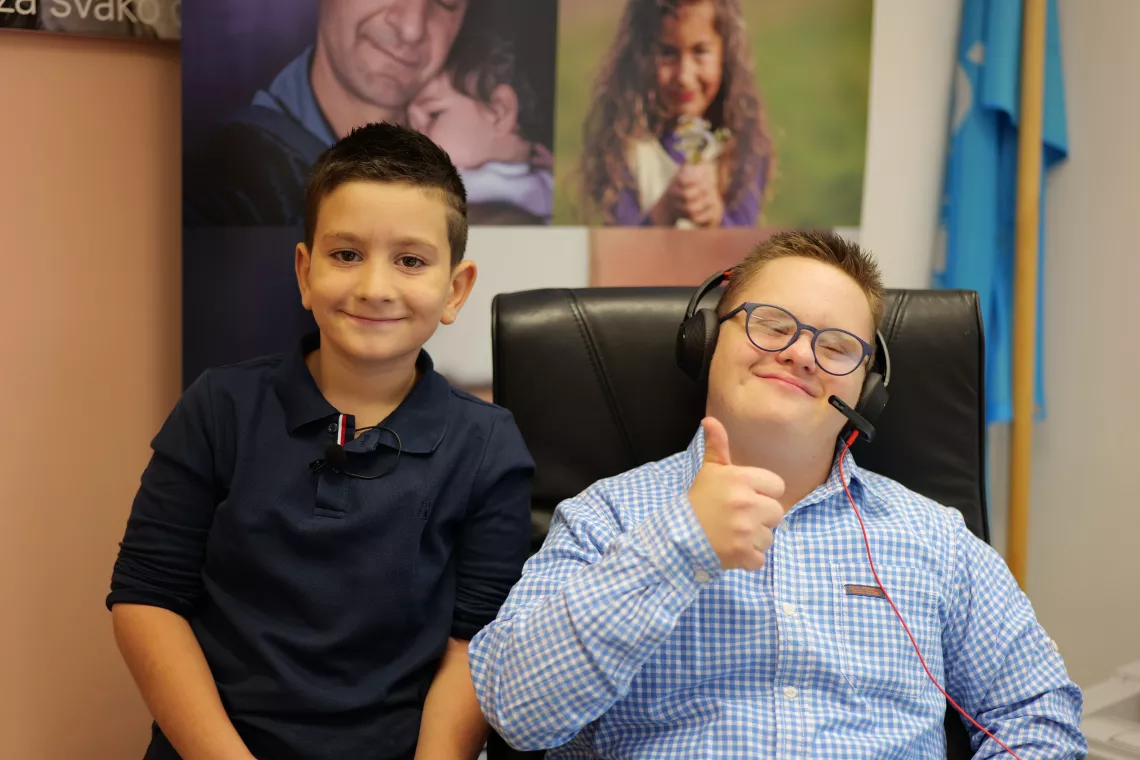Commentary by Dr Ronak Khan, UNICEF Representative in Bosnia and Herzegovina
Here in Bosnia and Herzegovina (BiH), as elsewhere in the world, children with disabilities are among the most vulnerable and marginalized groups. Not only are they excluded from basic social services such as health care and education, but they are also often considered a burden on their families and society. Many families find it difficult to meet the needs of these children as they lack support systems, while stigma and taboos exacerbate the situation. As a result, many children with disabilities end up in institutions or confined to their homes, missing out on any opportunity to develop their potential and capabilities.
The International Classification of Functioning, Disability and Health (ICF) is a framework for classifying functioning, disability and health at both individual and population levels. Because individual functioning and disability are situational, the ICF also includes a list of environmental factors.
UNICEF Bosnia and Herzegovina, as a leading advocate of the right of every child to grow, learn, participate and be protected, has been working with authorities and relevant partners to address the needs of children with disabilities from a comprehensive and multisectoral perspective, from early detection and intervention, to inclusive education, health and social protection. Practice so far has shown the absolute necessity of implementing the ICF instead of the existing medical model widely applied in classifying disabilities.
The classification regulations in force in most administrative units of Bosnia and Herzegovina were based primarily on a medical approach, classifying children according to the degree and type of disability, completely excluding the elements of assessment of the child’s functioning and environmental factors affecting the child’s development.
One mother involved in our intervention said, “The previous assessment methods used to sadden me. How can you assess a child and come to a conclusion in 10 minutes?”
The main change in the reform of the child assessment system is to shift the focus from the current practice of detecting disabilities and confirming diagnoses to empowering children and their families, identifying children’s abilities, needs and interests, and adapting the environment to meet them.
In 2019, UNICEF Bosnia and Herzegovina, in close consultation with the health, education and social welfare sectors, carried out an analysis of the laws and practices used in the assessment of children with disabilities in the 10 cantons of the Federation of Bosnia and Herzegovina (FBiH), as the basis for the development of a roadmap of recommendations. The main objective of this map was to align the assessment of children with disabilities in all 10 cantons of FBiH with the ICF. Of these, two cantons, Herzegovina-Neretva (HNK) and Zenica-Doboj, have been identified as pioneering cantons for the preparation, training and implementation of the ICF. From mid-2022, Una-Sana canton has also joined this effort.
So far, great progress has been made in HNK as a designated group of experts has successfully amended the bylaws and developed a rulebook and guidebook to train/instruct professionals in the health, education and social security sectors. The state is a pioneer in this effort nationally and locally. This is a milestone and positive development towards a comprehensive approach to supporting children with disabilities and their families. This approach is successful because all stakeholders are doing their part, from developing individualized plans for children to providing resources and services to implement the plans.

